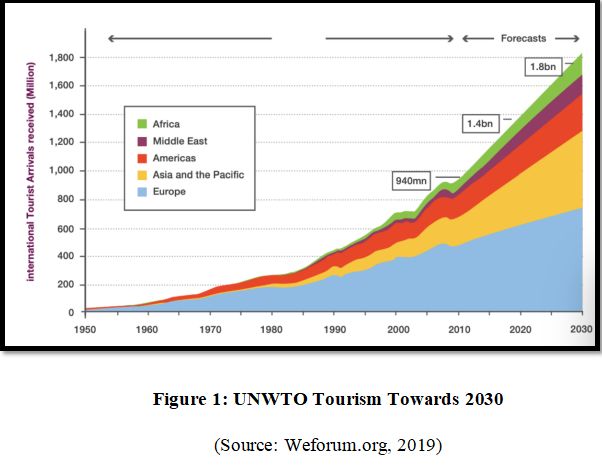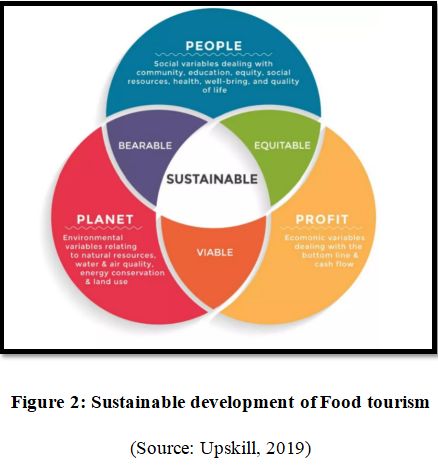Food Tourism Case Study
- Country :
Australia
1.0 Introduction
A fascinating and thriving trend in the travel industry is food tourism, a delicious tour of the world's various cuisines. This delicious method of travel research enables visitors to experience a destination's heart and soul through its culinary traditions, going far beyond simply trying the local cuisine.The goal of food tourism is to introduce tourists to a place's culture, history, and inhabitants through their culinary senses (Chon & Maier, 2010). It is a celebration of flavors, a look into unusual eating customs, and proof that food is a universal language that knows no boundaries.Food tourism serves two purposes. First of all, it feeds the demands of voracious food lovers who long to travel the globe one dish at a time. Second, and perhaps more importantly, it acts as a link between tourists and the places they travel to. Food tourists get a deeper understanding and appreciation for the places they visit by indulging in local cuisine, attending cooking workshops, and learning the tales behind each dish.
2.0 Discussion
2.1 Article 1: The Global Feast: Exploring the Savory World of Food Tourism"
A culinary revolution has been building in the tourism industry recently. Travelers today want to experience the sites as well as just see them. Enter culinary tourism, a delicious fad that is sweeping the world.In order to fully experience a destination, food tourism must be done. It's about appreciating the distinctive tastes of an area, learning about regional cooking customs, and establishing a connection with locals through their food. Food tourism is a delectable trip of cultural exploration, whether you're indulging in street tacos in Mexico City, devouring sushi in Tokyo, or tucking into a big bowl of pasta in Italy.
Develop a sustainable tourism industry
A crucial part of the growth of sustainable tourism can be played by food tourism. We support traditional food producers and promote local cuisine, which helps local economies remain viable. Weencourage the preservation of natural resources and biodiversity through farm-to-table encounters and culinary excursions, establishing a positive link between tourists and the environment.
Security and Safety
Travelers' top priority continues to be safety. Food tourism frequently takes visitors into local markets and neighborhoods, therefore it's important to have a thorough grasp of the safety situation there. Responsible food tourism providers put their customers' safety first by creating well-researched itineraries and working with local authorities to provide risk-free gastronomic experiences.
Effect on tourism and travel
Food tourism is becoming more popular as a result of shifting trends in society and culture. Travelerslooking for authentic experiences are frequently spurred on by a desire to connect with regional cultures and culinary customs(Goeldner& Brent Ritchie, 2009). Due to this change, the tourism and travel industry is being reshaped, and as a result, tourist locations are making investments to market their distinctive gastronomic offers.
Global Warming and Climate Change
The effects of climate change do not exempt the culinary world. Responsible production and consumption are emphasized by sustainable food tourism, which also emphasizes the value of using fresh, in-season ingredients(Putz, 2022). It also encourages travelers to have conversations about how food choices affect the environment and adopt more environmentally friendly practices.
Leading inthe Tourism Policy
Harnessing the potential of food tourism for sustainable development requires effective leadership at the local, regional, national, and international levels. In addition to promoting ethical sourcing and ensuring that the economic benefits of food tourism are fairly distributed among communities, leaders can develop rules that safeguard regional culinary traditions.
Getting Rid of Travel Barriers
Food tourism lovers are sometimes eager to visit off-the-beaten-path locations, which may present difficulties with immigration and obtaining visas(Telfer, 2000). These obstacles can be removed by promoting simplified travel procedures and more international cooperation, enabling travelers to experience new culinary adventures.
New Tourism Technologies
The traveler's experience can be improved by incorporating technology into culinary tourism. With the help of augmented reality food tours and food delivery applications, technology provides creative methods to discover different culinary cultures (Mohamed, 2021). By educating tourists and businesses about these technologies, the food tourism experience can be improved.
Workforce with Skill for High-Quality Tourism
Delivering high-quality food tourism experiences requires a skilled and motivated crew. Programs for culinary education and training can strengthen local communities and give them access to chances for fulfilling work in the tourism industry.
Impact of Health, Political, and Natural Disasters
Even interruptions caused by humans or the environment might affect the food tourism industry. Operators of responsible food tourism need backup plans to deal with these difficulties and maintain the security and welfare of visitors and the neighborhood.

Developing Rural and Indigenous Populations
By presenting their distinctive culinary traditions and creating economic possibilities, food tourism has the ability to improve indigenous and rural communities. It can be a tool for social and economic empowerment, assisting marginalized communities in escaping oppression and poverty, when used appropriately.
Food tourism is not just a fad, it's a worldwide feast of flavors, customs, and tales ready to be savored as tourists seek out more authentic and engaging experiences. So get ready to pack your hunger and go on a gastronomic journey that will take you from crowded street markets to Michelin-starred restaurants, from home kitchens to agricultural fields, and leave you with a stronger understanding of the many different cultures throughout the world.
2.2 Article 2: The Rise of Culinary Tourism: Exploring the Foodie's Paradise"
There is a new star in the travel industry, but it is a plate rather than a location. One mouthful at a time, culinary tourism, sometimes known as "foodie tourism," is on the rise and transforming how we travel.More than just a passing phrase, culinary tourism is a vibrant movement that honors the world's many culinary traditions. It serves as a ticket to discovering new flavors, a tour through the past and present of a place, and an immersion into the history and culture of the foods we like.
Develop a sustainable tourism industry.
A stimulus for maintaining a destination's sustainability can be culinary tourism. It helps to boost local food markets and producers, which benefits the local economy. The carbon footprint of meals is reduced when local and seasonal ingredients are used, aiding in the protection of natural resources.

Security and safety
Operators in the culinary tourism industry place a high priority on the safety of their visitors(Walker, 2016). They work together with local authorities to guarantee safe culinary excursions, resolving safety worries and producing unforgettable, worry-free journeys for tourists.
Impact on tourism and travel
The travel and tourism business is significantly impacted by culinary tourism. Destinations known for their gastronomic offerings are attracting more tourists(Didkovska,2023). The landscape of the industry is changing as a result of this shift in travel tastes, which encourages countries to invest in promoting their culinary heritage.
Addressing Climate Change
Climate change's effects extend to the culinary world as well. Sustainable culinary tourism places a strong emphasis on ethical sourcing, minimizing food waste, and informing visitors about the environmental effects of their dietary decisions. It encourages vacationers to partake in environmentally friendly dining habits.
Leadership in Tourism Policy
To fully realize the promise of culinary tourism, effective leadership at the local, regional, national, and international levels is crucial (Chang et al.,2021). Regulations that safeguard culinary customs, advance ethical sourcing and guarantee equitable economic distribution across communities can be made by policymakers.
Eliminating Travel Barriers
Foodies frequently travel to remote locations where they may run into problems with immigration and visas. Promoting efficient travel procedures and global collaboration can get rid of these obstacles, making it simpler for travelers to go on gastronomic adventures.
Making Use of Technology
The experience of the traveler is improved by the incorporation of technology in culinary tourism. Technology offers creative methods to learn different culinary cultures, from virtual cooking classes to mobile apps that recommend nearby restaurants. The culinary tourism experience is enhanced when tourists and companies are informed about these technologies.
An Expert Workforce
For the provision of top-notch culinary tourist experiences, qualified and motivated personnel is essential. Programs for culinary education and training strengthen local communities and offer worthwhile job prospects in the tourism industry.
Adaptability to Disruptions
Natural catastrophes, health crises, and political upheavals can have an impact on culinary tourism, just like they can on other types of travel. Operators who practice responsible culinary tourism create backup plans to deal with these issues, assuring traveler security and community welfare.
Building Community Strength
The celebration of indigenous and rural cultures' culinary traditions through culinary tourism creates economic opportunities that can help these communities escape marginalization and exploitation (Omar et al., 2020). Culinary tourism promotes their recognition and empowerment by presenting their distinctive cuisine traditions.
Are you struggling to keep up with the demands of your academic journey? Don't worry, we've got your back! Exam Question Bank is your trusted partner in achieving academic excellence for all kind of technical and non-technical subjects.
Our comprehensive range of academic services is designed to cater to students at every level. Whether you're a high school student, a college undergraduate, or pursuing advanced studies, we have the expertise and resources to support you.
To connect with expert and ask your query click here Exam Question Bank

